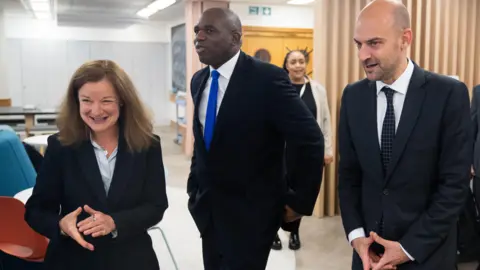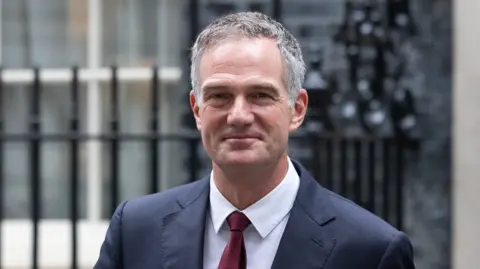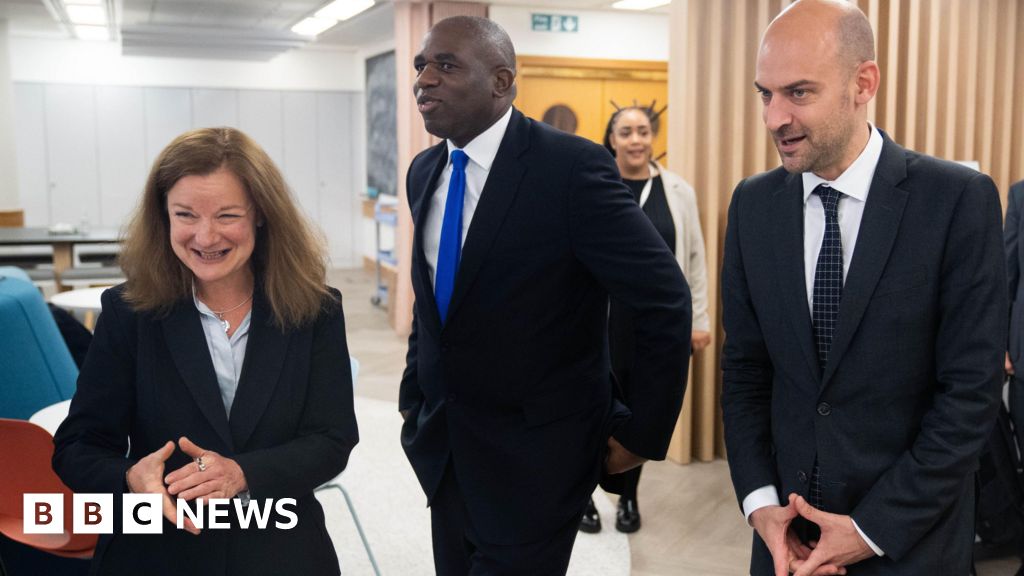Graham FraserTechnology reporter
 PA
PAThe chief executive of the UK’s national institute for artificial intelligence (AI) has resigned following staff unrest and a warning the charity was at risk of collapse.
Dr Jean Innes said she was stepping down from the Alan Turing Institute as it “completes the current transformation programme”.
Her position has come under pressure after the government demanded the centre change its focus to defence and threatened to pull its funding if it did not – leading to staff discontent and a whistleblowing complaint submitted to the Charity Commission.
Dr Innes, who was appointed chief executive in July 2023, said the time was right for “new leadership”.
The BBC has approached the government for comment.
But those who wrote the whistleblowing complaint have told the BBC Dr Innes’ resignation was the “first step”.
“With the rest of our £100m public funding still at stake, the priority now is to ensure the leadership overhaul that should follow – board and executive alike – can command the confidence of staff, government, regulators and, most importantly, the nation,” they said.
The Turing Institute said its board was now looking to appoint a new CEO who will oversee “the next phase” to “step up its work on defence, national security and sovereign capabilities”.
Its work had once focused on AI and data science research in environmental sustainability, health and national security, but moved on to other areas such as responsible AI.
The government, however, wanted the Turing Institute to make defence its main priority, marking a significant pivot for the organisation.
“It has been a great honour to lead the UK’s national institute for data science and artificial intelligence, implementing a new strategy and overseeing significant organisational transformation,” Dr Innes said.
“With that work concluding, and a new chapter starting… now is the right time for new leadership and I am excited about what it will achieve.”
What happened at the Alan Turing Institute?
Founded in 2015 as the UK’s leading centre of AI research, the Turing Institute, which is headquartered at the British Library in London, has been rocked by internal discontent and criticism of its research activities.
A review last year by government funding body UK Research and Innovation found “a clear need for the governance and leadership structure of the Institute to evolve”.
At the end of 2024, 93 members of staff signed a letter expressing a lack of confidence in its leadership team.
In July, Technology Secretary Peter Kyle wrote to the Turing Institute to tell its bosses to focus on defence and security.
He said boosting the UK’s AI capabilities was “critical” to national security and should be at the core of the institute’s activities – and suggested it should overhaul its leadership team to reflect its “renewed purpose”.
He said further government investment would depend on the “delivery of the vision” he had outlined in the letter.
This followed Prime Minister Sir Keir Starmer’s commitment to increasing UK defence spending to 5% of national income by 2035, which would include investing more in military uses of AI.
 Getty Images
Getty ImagesA month after Kyle’s letter was sent, staff at the Turing institute warned the charity was at risk of collapse, after the threat to withdraw its funding.
Workers raised a series of “serious and escalating concerns” in a whistleblowing complaint submitted to the Charity Commission.
Bosses at the Turing Institute then acknowledged recent months had been “challenging” for staff.
Prof Harin Sellahewa, professor of computing at the University of Buckingham, said the change in direction could be bad for the charity’s future.
“It is difficult to see the Alan Turing Institute making a lasting impact on the world’s most pressing societal issues if it limits its core activities to defence and national security, and some selected projects in environment and healthcare,” he said.
“With this narrowed focus, the institute may no longer be seen as the national institute for AI and data science.”
Additional reporting by Zoe Kleinman



